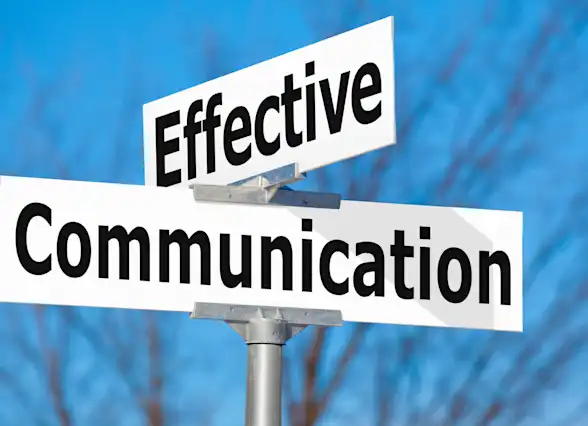How to Communicate Effectively with Family About Your Caregiving Role
One critical but often overlooked aspect of caregiving is clear and effective communication with family members. Sharing the reality of your role and the support you need is essential for fostering understanding and cooperation. Here are some tips to help you communicate effectively with family about your caregiving role.
Get insurance benefits, legal documents, and medical records in one place

Being a caregiver for a loved one is a responsibility that often comes with emotional and physical challenges. As you manage the daily tasks of caregiving, balancing your personal life and responsibilities can feel overwhelming. One critical but often overlooked aspect of caregiving is clear and effective communication with family members. Sharing the reality of your role and the support you need is essential for fostering understanding and cooperation. Here are some tips to help you communicate effectively with family about your caregiving role.
1. Be Honest About Your Role
Transparency is key when discussing caregiving with your family. Clearly explain the responsibilities you’ve taken on, such as medical appointments, daily care, and emotional support for your loved one. Use specific examples to help family members understand the scope of your role. For instance, instead of saying, “I’m doing everything,” share, “I’m managing doctor appointments, preparing meals, and handling finances.”
2. Express Your Needs
Caregiving is a demanding job, and it’s okay to ask for help. Be direct but compassionate when expressing your needs. Instead of hinting at your struggles, say, “I could use help with grocery shopping,” or “Would you be able to spend an afternoon with Dad so I can take a break?” Many family members may not realize the extent of your responsibilities unless you ask for support.
3. Set Boundaries
Establishing boundaries is crucial to maintaining your well-being. Let family members know what you can and cannot do. For example, if you need time to recharge, explain, “I’m available to help during the week, but I need Sundays for self-care.” Setting clear boundaries prevents misunderstandings and resentment.
4. Schedule Family Meetings
Regular family meetings, whether in person or virtual, are an excellent way to keep everyone informed about your loved one’s care. Use these opportunities to update family members, delegate tasks, and discuss any changes in caregiving needs. Having an open forum fosters collaboration and shared decision-making.
5. Practice Active Listening
Communication is a two-way street. Encourage family members to share their thoughts and concerns, and listen actively without interrupting. This approach creates a supportive environment where everyone feels heard and valued.
Effective communication strengthens family bonds and lightens the load of caregiving. By sharing your journey, expressing your needs, and fostering collaboration, you can create a network of support that benefits both you and your loved one. Remember, you don’t have to navigate caregiving alone—leaning on family can make all the difference.
Caring for a loved one can be rewarding but also overwhelming. Helpful’s therapists are here to support you with personalized care to reduce stress, restore balance, and address caregiver burnout.
Get more support and guidance on insurance benefits, medical records and legal forms.
Helpful brings together your insurance benefits, legal documents, and medical records in one personalized place — so you always know what you have, and never have to search again.

Technology for Health Tasks. Mental Health for the Tough Stuff.
Helpful connects your medical records, insurance, and caregiving tasks automatically. And when you need more than logistics, a therapist is here to guide you.
In-Network and Covered
For Individuals, Couples and Families
HIPAA Compliant, Data Stays Private


Healthcare Tasks Simplified

From syncing records to spotting drug interactions, Helpful does the heavy lifting, turning complex health info into clear tasks and showing you benefits you can actually use, giving you clarity and control over your care.

In-Network Mental Health

Our licensed therapists are here to support you and your loved ones through stress, burnout, and life’s hardest moments, with an inclusive, compassionate approach that works with most insurance plans.

Create Legal Documents

Plan ahead by creating will, trusts, advance directives and more, that ensure your wishes are honored in the event you can’t speak for yourself -with Helpful guiding you every step of the way.